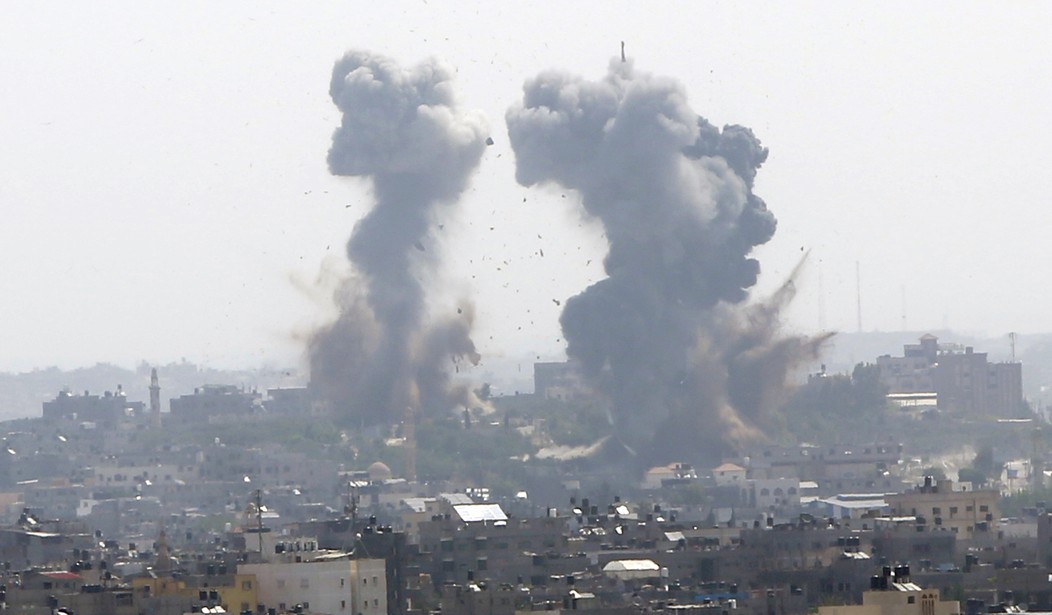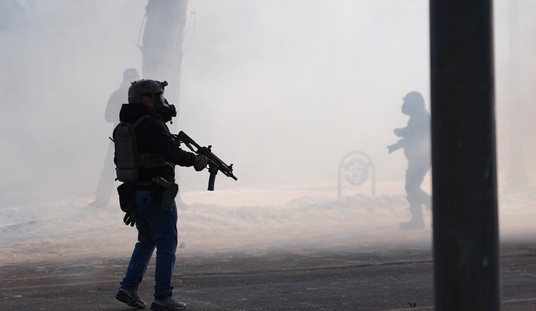According to the Jerusalem Post, yes — with the cooperation of global media. Late yesterday, the Israeli Defense Force tweeted out that “air and ground troops are currently attacking in the Gaza Strip.” Foreign media bit at the tweet and reported widely that Israel had invaded Gaza, calling it a “major escalation.”
However, ground troops hadn’t entered Gaza. The IDF needed Hamas to think they had, and Hamas played right into the trap, the JP reports (via Ben Shapiro):
Websites of media outlets around the world, including the Washington Post and ABC, reported the incursion. “Israeli troops have entered the Gaza Strip as conflict with Palestinians escalates, Israeli military says,” was the tweet put out by the Washington Post.
The problem was that there was no ground invasion. Yes, the IDF had deployed troops along the border but they did not cross into Gaza. What did happen was in the air where 160 aircraft had assembled for a massive bombing run over the Gaza Strip. Their target was what the IDF called Hamas’s “Metro”, an underground network of tunnels where Hamas stored its weapons and used to move throughout Gaza hidden from Israeli aircraft. …
According to reports, due to the deployment along the border and the news coming out in the foreign media of a ground incursion, Hamas and Islamic Jihad sent their first-line of defense into the tunnels to start taking up positions. These were the anti-tank missile teams and mortar squads meant to strike at incoming Israeli ground forces.
What they did not know was that there was no ground offensive. Instead, once they were out of the tunnels, they were exposed to Israeli aircraft. Within minutes, the “Metro” attack went ahead.
It’s a smart ploy, one that leverages foreign-media credulity and sympathies toward the Palestinians. If this turns out to be true, one can only imagine the chagrin among the editorial class of those who got suckered into playing the IDF’s game. And if it turns out to be true, it will be interesting to see how effective it was in drawing out Hamas’ forces for easy destruction by the IDF while separating them from the civilian population.
Of course, we also have to remember that stories that seem too good to be true often are. (That’s a lesson some media outlets might learn from this if the JP’s report holds up.) The New York Times reminds us this morning that both sides will be looking for victory narratives that will emerge from the inevitable stalemate at the end of this conflict, and this would do nicely for Israel:
Both Israel and Hamas first have to find ways to spin a narrative of victory for their publics, analysts say, but the task will be easier for Hamas than for Israel.
Israel’s caretaker prime minister, Benjamin Netanyahu, has to calculate the impact of the fighting on his political future, made more complicated by the internal unrest between Jews and Israeli Arabs in numerous cities inside Israel. The crucial decision for Israel is whether “victory” requires sending ground troops into Gaza, which would extend the conflict and significantly increase the number of dead and wounded on both sides.
Early Friday, Israel sharply intensified its attacks on Gaza and its underground tunnel structure, including intensive artillery bombardment, but Israeli troops did not enter Gaza itself — at least not yet. That would be a major escalation against the Hamas militants who have been launching hundreds of rockets at Israel. The move could extend the conflict and significantly increase the number of dead and wounded on both sides.
Hamas, which has controlled Gaza for the past 13 years and withstood two major wars with Israeli forces, faces its own challenges in how to spin the fast-moving developments into a victory narrative.
Note that the NYT’s Steve Erlanger had caught up to the fact that Israel hadn’t crossed over into Gaza yet when he wrote this. He also confirmed the attacks on the tunnel structures, which tends to at least correlate with the JP’s report on the feint. That might turn out to be more substantial than just PR after all, and it could help Netanyahu argue that this battle has given Israelis a little better position against Hamas in the future.
As for Hamas, they’ve never really needed a victory narrative. They only need grievance narratives, which the fighting itself provides even when they lose. They fire rockets from civilian-intense positions so that IDF strikes create as much “collateral damage” as possible, which the credulous foreign media amplifies to strengthen Hamas’ political position in Gaza. That’s what makes the JP’s report so compellingly ironic … and why it might look too good to be true, but we hope it’s not. But we should wait until the dust settles to decide whether it is or not.








Join the conversation as a VIP Member